Sheet Metal Type A

For self starting in thin
(.015 to .050 thick) metal or
resin-filled plywood.
|
Sheet Metal Type AB
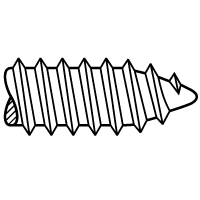
Designed for use in the thinner
sheet metal commonly used today,
particularly in appliances.
|
Sheet Metal Type B
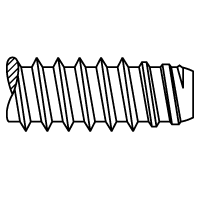
For molded or through holes
in thin metal, non-ferrous castings.
|
High-Low
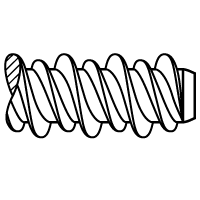
For use in plastic, nylon, and wood.
Thread design reduces driving torques,
enhances resistance to thread stripping,
and improves pullout strength.
|
Self-Piercing
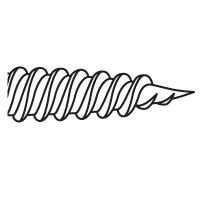
To be used in thin metal
(less than .050 thick). Eliminates
need for pre-drilled holes. Undercut area
beneath the head allows greater length of
thread engagement. Twin lead threads
reduce driving torque.
|
Self Drilling Type BSD
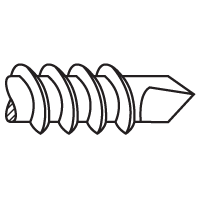
This screw drills its own hole in metal.
Can attach metal to metal; or composition
board, plywood or soft woods to metal.
|
Self Drilling Type CSD

Also drills its own hole; usually
preferred over Type-BSD drill screws
when fastening thicker materials.
|
Thread Rolling Taptite®
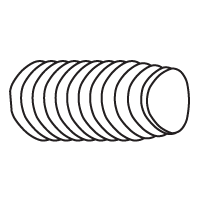
For drilled, punched or cored holes in
all ductile metals and punch extruded metals.
Eliminates chips, requires low drive torque and
is resistant to vibrational loosening.
|
Thread Rolling Plastite®
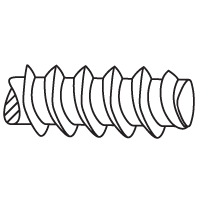
Used in thermoplastics, engineering resins
and certain thermosets. The 48° thread
profile increases holding strength while
reducing material displacement.
|
Thread Cutting Type 1
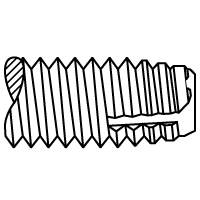
Steel: Used in steel sheets, structural
shapes, special alloy steels, cast iron,
brass or plastics. Stainless: Material into
which the screw is to cut threads should
have a lower hardness by 10-20 Rockwell
hardness points.
|
Thread Cutting Type 23
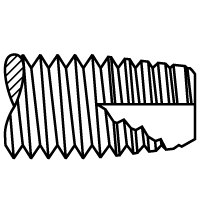
Provides excellent chip clearance with
minimum tightening torques. Steel: Used in
cast iron and zinc, aluminum die castings,
and plastics. Stainless: Material into which the screw
is to cut threads should have a lower hardness by
10-20 Rockwell hardness points.
|
Thread Cutting Type 25
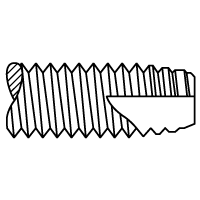
Provides excellent chip clearance.
Steel: Used in molded or through
holes in plastics and other soft materials.
Stainless: Material into which the screw
is to cut threads should have a lower
hardness by 10-20 Rockwell hardness points.
|
Thread Cutting Type F
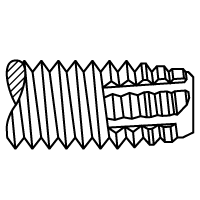
Steel: Used in heavy gauge sheet
metal, aluminum, zinc and lead
die castings, cast iron, brass and plastic.
Stainless: Material into which the screw is to
cut threads should have a lower hardness by
10-20 Rockwell hardness points.
|
Type 17
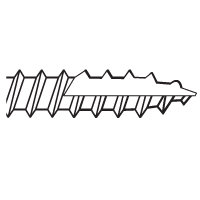
Used in decking materials including
woods with medium density and
composite materials.
|
Masonry | Concrete Screw
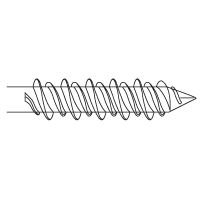
Cuts its own threads when used
in concrete, block or brick. Carbide
bits are recommended for use in masonry.
|
Drive Screw Type U
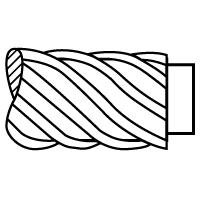
For making permanent fastenings i
n metals and plastics, when forced
into the work piece using pressure.
|
Wood Screw | Full Body
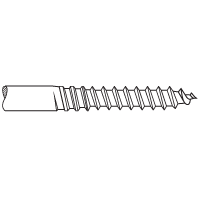
Will produce a mating thread
when assembled into wood or
other resilient materials.
|
Machine Screw | Cap Screw
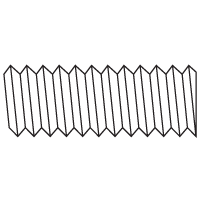
Designed to go through a hole
or nut that is pre-tapped to form
a mating thread for that screw.
|

